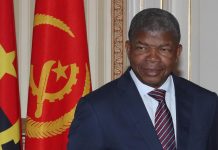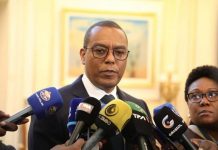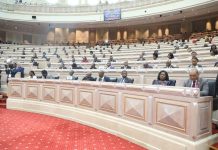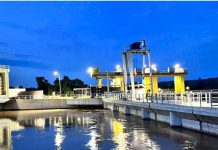Africa-Press – Angola. The deputies to the National Assembly approved, yesterday, in general, the draft resolution for the ratification of the agreement on mobility between the Member States, an initiative that will attract more foreign private investment to the geographical space of the Community of Portuguese-Speaking Countries (CPLP).
Facilitating mobility among CPLP citizens is an old aspiration of the Member States and this agreement contributes to its realization, respecting institutional and regional normative specificities, in order to guarantee the solidity, security and implementation of solutions.
The agreement constitutes an essential instrument for the deepening of the community and the progressive construction of a citizenship of the CPLP and will help in the improvement and promotion of cooperation relations at all levels, namely in economic, cultural, social and academic relations.
The Secretary of State for Cooperation of the Ministry of Foreign Affairs, Domingos Vieira Lopes, when presenting the diploma to the plenary, said that mobility in the CPLP is an instrument for strengthening community identity, taking into account the specificities of each country in the fields institutional and regional insertion.
He informed that by ratifying this agreement, Angola fulfills the commitment assumed, as a member state of the CPLP, to contribute to the establishment of a legal framework that will provide a set of practical modalities to facilitate mobility in the community space.
Alcides Sakala (UNITA deputy) said that the establishment of cooperation relations in terms of the mobility of citizens of the CPLP Member States is an opportune decision, because it will make it possible to build bridges between Nations and peoples with cultures, habits, customs and people’s identity values.
The various dimensions of mobility, he continued, will revolutionize the exchange between Portuguese-speaking people and peoples, “for this reason, Member States must organize themselves in the best possible way, to face the challenges of mobility”.
Ratification aims to establish a legal framework that creates a set of mechanisms and practical modalities with a view to facilitating the mobility and circulation of people, goods and services in the CPLP geographic State, providing an environment that enhances opportunities and benefits for the promotion of development and the economic and social well-being of the people of the respective countries.
passports
Holders of ordinary passports, in groups, depending on the activities they carry out or the situation in which they find themselves or any other relevant criterion, the parties are allowed to restrict entry by conditioning the permanence of the citizens of the other party in their territory due to well-founded suspicions. on the credibility and authenticity of documents, which attest to the quality required for mobility, as determined by the domestic law of these parties regarding systematization.
One of the issues that also deserved discussion in the National Assembly and was approved with 154 votes in favour, with no votes against and no abstentions was the proposed law that approves the statute of the administrator of Recovery or Insolvency.
The proposal establishes an “ex-novo” regime on non-contractual civil liability of the State and other public entities, that is, the obligation that falls on an entity involved in an activity of a public nature that has caused damage to individuals (outside the context of a contractual relationship).
Deputy Eduardo Delfino, from the Parliamentary Group of UNITA, praised the initiative, but explained that this is a specific legislation that must address aspects that are included in the statute of the administrator of recovery or insolvency.
Sebastião André, deputy of CASA- EC, called for a reflection on the clause that determines 5 years of professional experience: “I want to remind you that in this way we mutilate youth”.
Another dissatisfaction of the deputy is the fact that Angolans and foreigners are running for administrator. “They are putting Angolans and foreigners on an equal footing in order to be an administrator. An expatriate who is in the country is very far away, far beyond the Angolans, because he already comes with his abilities. He surpasses the Angolans in this kind of competition. I understand that we should not, in our law passed on behalf of the people, place foreigners on an equal footing to compete in the exercise of a national function or office”, he defended.
For More News And Analysis About Angola Follow Africa-Press






